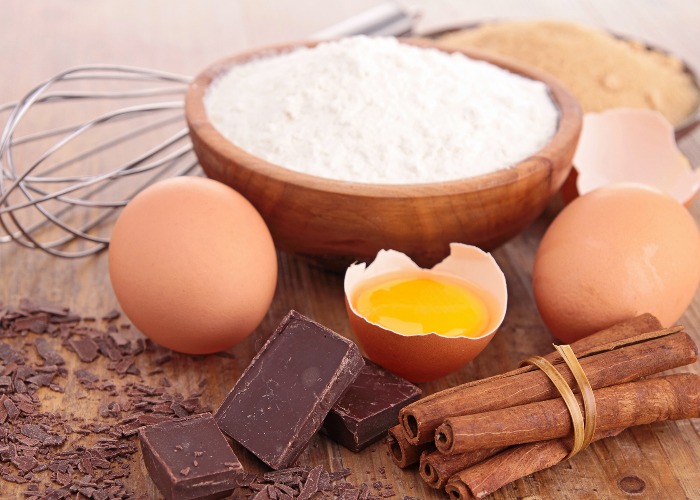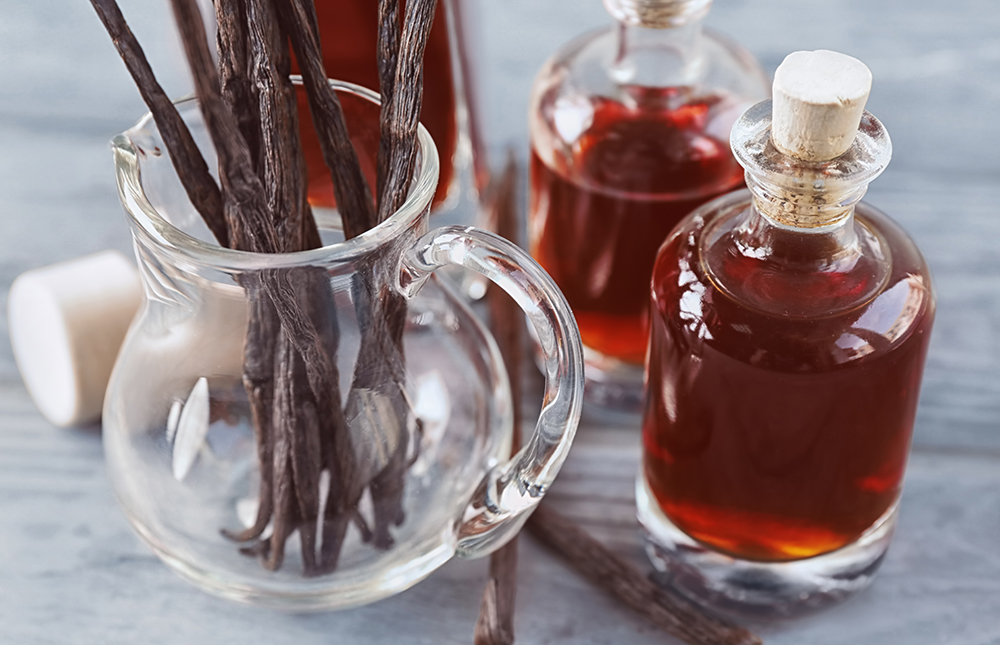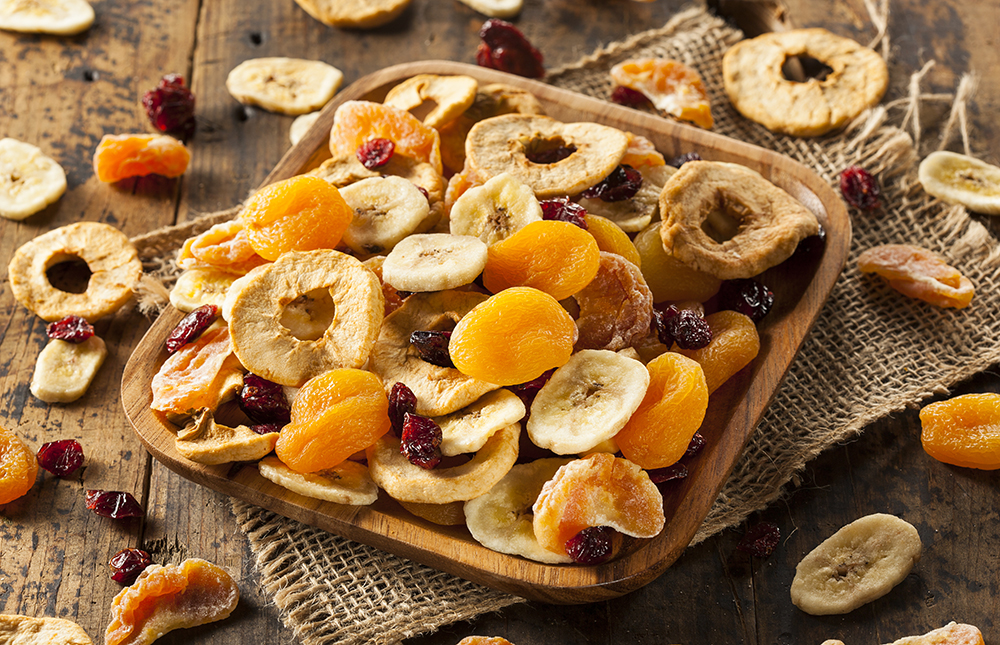The complete guide to baking ingredients

These are the 12 essential baking ingredients for fluffy sponges, perfect pastries and best-ever biscuits.
If you’ve ever tried your hand at baking, you’ll know that it's an exact science. A few extra grams here or there or a missing ingredient, and hours of hard work can collapse in a second.
We take a look at why it’s important to know your baking soda from your baking powder, why salt is just as important as sugar and what products to try the next time you get your baking tins out.
Flour

Africa Studio/Shutterstock
Essential for everything from cakes and cookies to pastry and bread, flour gives baked goods their structure. The two most-commonly used types of flour are plain and self-raising (the latter contains a raising agent). Other popular varieties include wholemeal, strong (which is used for bread) and gluten-free flour.
Try: Homepride’s plain and self-raising flours are milled in the UK, made from 100% British wheat and pre-sieved for ease. If you prefer an organic brand, Doves Farm has a wide range of excellent flours on offer, from plain and self-raising to more unusual wholemeal varieties like einkorn and emmer. They’re also good for gluten-free flour.
Sugar

beats1/Shutterstock
Sugar is arguably one of the most important baking ingredients. It not only makes baked goods sweet, it can add a deep golden colour and depth of flavour. Having white granulated sugar, icing and brown sugar to hand will cover you for many recipes. Investing in good caster, muscovado and demerara sugar is well worth it, especially if you do a lot of baking.
Try: For Fairtrade, good-quality sugar, we like Tate & Lyle while Billington’s is great for unrefined sugars like demerara and muscovado. For a more unusual touch in your bakes, try Steenbergs Fairtrade, organic flavoured sugars, like rose and lavender or cinnamon and mulled spice. If you’re after natural sweeteners, Biona has a great selection of different syrups like agave and date.
Cocoa

iprachenko/Shutterstock
First and foremost, cocoa powder used in baking has to be high-quality for the best result. Cocoa ensures a rich, intense chocolate flavour and appetising dark brown colour. We recommend looking for Fairtrade and ethically-sourced products.
Try: Green & Black’s offer an organic and Fairtrade cocoa powder while Green Origins sell cacao powder. This means that during processing, the cocoa beans are heated at a much lower temperature than cocoa resulting in a less sweet flavour.
Chocolate

Gulsina/Shutterstock
When choosing between cocoa and chocolate, flavour is not the only deciding factor. In creamy desserts and brownies, chocolate gives a silkier, fudge-like texture, while cocoa is better for a more intense flavour and colour in cakes. Cocoa also helps create moisture in cakes and makes for chewy brownies.
Cooking (or baking) chocolate is usually unsweetened, meaning that you won’t end up with an overly sweet bake. For pastries with chocolate, like croissants or pain au chocolat, you can also use a chocolate spread to cut down the cooking time and simplify the recipe.
Try: Guittard is great for natural and flavoured baking chocolate bars, chips and wafers, while Menier and Dr Oetker cooking chocolates have long been a popular choice among bakers. When choosing a chocolate spread, steer clear of the ones loaded with sugar and palm oil. Venchi offer a good selection of spreads with olive oil.
Leaveners

Fascinadora/Shutterstock
Ingredients like baking soda, baking powder and yeast cause the expansion of doughs and batters, producing bakes with a porous structure.
Baking soda (also known as bicarbonate of soda) is much stronger than baking powder. It needs an acid (like brown sugar, yogurt, lemon juice, molasses etc) to act as a leavener. Baking powder is a mix of baking soda, cream of tartar and, sometimes, cornstarch – the leavening process starts as soon as any wet ingredients are added. It’s why recipes containing baking powder can’t be prepped ahead and why the dough continues to rise while baking.
Instant yeast and dried yeast can be swapped for one another in recipes – but remember that dry yeast needs to be dissolved in water before adding it into the dough.
Try: Dr Oetker is great for baking powder as are most supermarket own brand products. Allinson offers both easy bake yeast and dried active yeast. Check out Doves Farm for gluten-free baking powder.
Vanilla

Africa Studio/Shutterstock
Vanilla enhances all the other flavours in a bake so you’ll see it within the ingredients list of most recipes. While a lot of professional pastry chefs and bakers insist that nothing can substitute the flavour of Madagascan vanilla, there are concerns about the sustainability of vanilla bean farming. A high-quality vanilla essence is a good stand-in or, if available, try tonka beans. Similar to vanilla, it’s slightly richer and nuttier in flavour.
Try: Taylor & Colledge’s wide range of vanilla products, including extract, paste and whole pods, are ethically and sustainably sourced from Madagascar, Comoros islands, Tonga and Papua New Guinea. If you’re interested in trying out tonka beans, you can order them from Sous Chef.
Spices

Goolia Photography/Shutterstock
Everyone knows that spices are some of the most important ingredients in the kitchen as they bring out and enhance the natural flavours of a dish. It’s time to go through your spice rack and try using them in baking as well.
Go beyond common baking spices like cinnamon and allspice and try something different. Coriander works well with tropical flavours like coconut and lime; cardamom is best when paired with carrot; and nutmeg livens up everything from cheesecakes to pancake batter.
Try: Build your own pack of Holy Lama Spice Drops from their pick-and-mix list of 29 spices. Life of Spice offers premixed baking spices like gingerbread and pumpkin pie.
Nuts

Dionisvera/Shutterstock
A great way to add flavour and texture, nuts can be used in many different ways when baking. Ground nuts like cashews and almonds act as a flour substitute in gluten-free bakes while chopped nuts like pecans and walnuts are perfect for pies and cookies.
But don't be afraid to experiment. Pine nuts might seem more suited for savoury dishes, but their earthy flavour and soft, oily texture make them a perfect addition to bakes as well. They’re especially popular in Italian cakes and go well with pears.
Try: Both Just Natural and Crazy Jack offer a large selection of organic nuts and seeds ideal for baking. Top tip – before adding nuts to any bakes, lightly toast them. This will release their natural oils and enhance their flavour and texture.
Dried fruit

Brent Hofacker/Shutterstock
Fresh isn’t always best, at least when it comes to baking. Fresh fruit can add a lot of excess moisture so dried fruit is a much better choice. If you’re not a fan, look past raisins and sultanas and you’ll find a rich offering of dried figs, prunes, dates and currants as well as mixed peel and glacé cherries.
Try: Whitworths offers a wide selection of delicious dried fruit and various fruit mixes perfect for fruit loaves and traybakes.
Syrups

id-art/Shutterstock
Some recipes call for the addition of honey, treacle, golden syrup or molasses. All of these can be used alongside sugar or instead of it, however, they all have very individual and distinctive flavour profiles. Molasses is a great addition to wintry bakes while golden syrup gives a pleasing golden colour and spongy texture.
Try: Lyle’s golden syrup is a classic choice but you should also try their black treacle which is great for gingerbread. There are many great honey producers in the UK, but we love hilltop honey – they produce a wide range of manuka, British, speciality and flavoured honeys as well as pollen and cut comb.
Fats

Sea Wave/Shutterstock
Fats ensure that the final result is tender and fluffy. We've already debated whether butter or stork is best for sponges but if you're making other baked goods like pastry, you might want to consider oil or lard. They make shortcrust pastries extra flaky. Fat is also important in bread making – it traps gases in the dough, helping it to rise and form a crispy crust.
Try: Look for a proper unsalted butter with a high fat content. We like Calon Wen and Yeo Valley.
Salt

AlenKadr/Shutterstock
The one ingredient some might forget or disregard in baking is salt, but it’s not only savoury dishes that need seasoning. In baking, salt also helps to control yeast fermentation in bread dough and enhances the overall flavour. It can change the texture of baked goods as the dough becomes a little stronger and tighter.
Try: We are big fans of sea salt brands like Maldon, Cornish Sea Salt or Halen Môn Anglesey sea salt.
You might also like:
Comments
Be the first to comment
Do you want to comment on this article? You need to be signed in for this feature